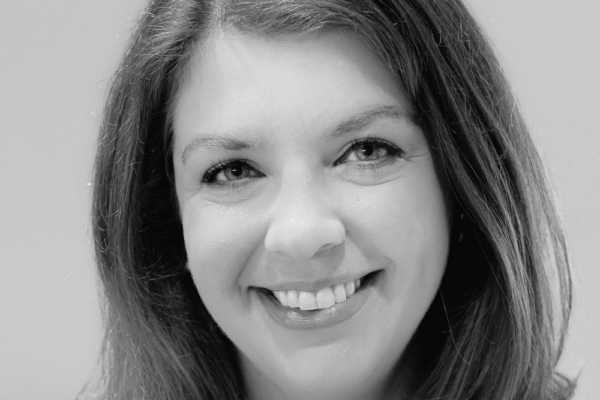“Over the years we’ve broadened to really look more holistically at what the Civil Rights Data Collection shows us about the identity, traits and different intersectionalities of students with disabilities,” said our Interim Executive Director, Jennifer Coco. And the data reinforces the broad agreement that exclusionary discipline doesn’t change student behavior. Schools want to do better, but long-standing shortages in counselors, social workers, and psychologists have left many unable to deliver what students actually need. The takeaway: To reduce exclusionary discipline, we need more than awareness. We need investment. Read the full EdSurge article by Nadia Tamez-Robledo here: https://www.edsurge.com/news/2025-07-18-data-shows-more-discipline-less-college-prep-for-students-with-disabilities
CLE is quoted in a report on the exclusive analysis by The 74 of 2022-23 IDEA data reveals stark disparities among students already subject to disproportionate punishment in school. Read more here.
After seeing what accountability looks like in a private school setting, our Interim Executive Director, Jennifer Coco, knew she had to share her story. After spending the last two decades in special education law and advocacy, she recently lived through the work through an entirely new perspective — as a parent. A private school of choice told her they would not serve her son. So much of our work is personal, and this experience only reinforced for Jennifer that CLE’s work and advocacy have never been more important. As Congress considers an unprecedented $20 billion private school voucher program in the “One Big Beautiful Bill,” there was real throughline with her professional advocacy and private journey as a parent of a child with a disability. This compelled Jennifer to pen an op-ed in The 74 explaining why giving up on the promise of IDEA and disinvesting in public schools is not the answer — and neither is lowering the bar for services and expecting better results. For the full piece, see here.
The Institute of Education Sciences (IES) is a cornerstone of evidence-based education, providing critical research, data, and tools that help schools improve student outcomes. But recent funding cuts could leave states and districts without the knowledge they need to make smart, student-centered decisions. As our Director of Research, Chase Nordengren, puts it: “We need more research to know what works, for whom, under what conditions. That’s what IES does. And if we can’t do that, we’re stuck with gut decisions — and that’s not good enough for kids.” Eliminating IES means: Fewer research grants to find what truly helps students Less data to guide education policy Fewer tools to help schools close learning gaps Our students deserve better. Let’s protect the research that helps them thrive. #SaveIES #EducationResearch #SupportOurSchools Read the full piece in @The74Media by Chase Nordengren here: https://www.the74million.org/article/eliminating-ies-means-fewer-resources-for-districts-states-to-educate-well/
“There’s been a pretty broad pronouncement that this administration is thinking about moving special education anyway.” Even if protections are written into law, that doesn’t guarantee they’ll be upheld under current conditions. Our Interim Executive Director, @Jennifer Coco, warns that shifting special education oversight from the Department of Education to Health and Human Services could reverse decades of progress. We fear this change could lead to harmful assumptions about disabled students’ ability to learn, increasing segregation and undermining inclusive education. Read the full piece in @The74Media by @Beth Hawkins here: https://www.the74million.org/article/isolation-neglect-disability-advocates-fear-return-to-a-bleak-past-under-hhs/
“Any move to separate the education of students with disabilities from the education of all students further pathologizes disability and is treating 15% of all the children in our public school buildings like they’re medical issues — they’re not.” We know that health and education systems speak in entirely different languages including variations in terminology, training, and disciplines. It simply doesn’t translate. Our Interim Executive Director, Jennifer Coco explains what’s at risk when discussing moving IDEA to the Department of Health and Human Services. Read the full piece by Shauneen Miranda in States Newsroom here.
Washington, D.C. – On Thursday, March 20, 2025, The Center for Learner Equity (CLE) joined the National Center for Learning Disabilities (NCLD), the Autism Society, the Council for Exceptional Children, and the Council of Parent Attorneys and Advocates (COPAA) for a virtual press conference discussing the unprecedented actions threatening the civil rights of students, particularly those with disabilities. Disability rights leaders discussed the consequences of dismantling the Department of Education and offered actionable next steps for families, educators, advocates, and policymakers. Jennifer Coco, CLE’s Interim Executive Director, spoke alongside: Dr. Jacqueline Rodriguez, CEO, NCLD Christopher Banks, President & CEO, Autism Society Denise Marshall, CEO, COPAA Chad Rummel, Executive Director, Council for Exceptional Children A recording of the press conference can be found here.
CLE vehemently objects to moving IDEA from the U.S. Department of Education to the Department of Health and Human Services.
CLE denounces the Trump Administration’s Executive Order calling for the Secretary to facilitate the closure of the U.S. Department of Education.
Our Interim Executive Director Jennifer Coco sheds a light on how education advocates, nonprofit leaders, and philanthropists can work together to uphold the rights of students with disabilities. Read the full article here.




